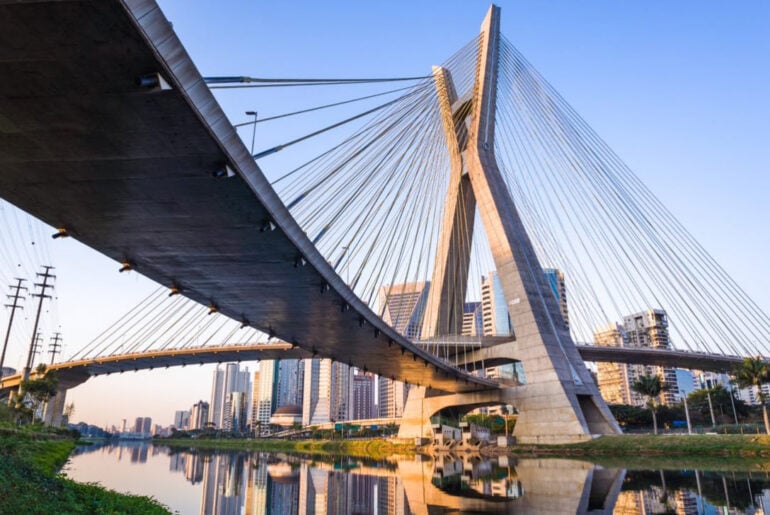Federal Decree No. 11,786/2023 was published on 21 November 2023, establishing the National Policy for Quilombola Territorial and Environmental Management (PNGTAQ). The policy aims to, among others, support and promote territorial and environmental management practices of quilombola communities, strengthen the territorial and environmental rights of these communities, and promote the implementation of public policies in an integrated manner and the conservation and sustainable use of biodiversity.
The South African Department of Trade, Industry and Competition recently published a White Paper on the manufacture, sale and use of Electric Vehicles in South Africa. The move is a decisive step on the path to the transformation of the country’s automotive industry.
Join us on 18 January 2024 as our Baker McKenzie experts – joined by Adam Jacobs Dean of AIMA and other industry specialists – explore the continuing evolution of ESG regulation and compliance challenges that firms can expect to encounter in the new year. This session will focus on the FCA’s new ESG product labelling regime (the “SDR”), upcoming changes to the EU’s SFDR regime, and emerging best practices in ESG governance.
The Competition and Consumer Commission of Singapore (CCCS) is developing a set of guidelines to provide greater clarity to suppliers on the environmental claims that could amount to unfair practices under the Consumer Protection (Fair Trading) Act, after a study found that one in two products sold online overstated their environmental claims.
The new EU Deforestation Regulation (2023/1115/EU) will impose due diligence obligations from 30 December 2024 aimed at tackling deforestation and forest degradation. The Regulation will require companies dealing in in-scope products to undertake due diligence into the source of a wide range of commodities, including cattle, cocoa, coffee, palm-oil, rubber, soya and wood, to ensure that they have not been obtained as a result of deforestation.
On 18 October 2023, the Monetary Authority of Singapore (MAS) issued a set of consultation papers proposing guidelines on transition planning by banks, insurers and asset managers (“TP Guidelines”) to enable the global transition to a net-zero economy. The TP Guidelines set out MAS’ supervisory expectations for the in-scope financial institutions to have a sound transition-planning process to enable their customers and investee companies to take effective climate change mitigation and adaptation measures when dealing with the global transition to a net-zero economy and the expected physical effects of climate change.
In this final part of the series, we will look at the Draft Waste Electrical and Electronic Equipment Management Act. The development of a legal framework for the management of waste from electrical and electronic equipment (WEEE) has been discussed and studied in Thailand for almost two decades. However, despite existing general environment-related laws, such as the NEQA, the Hazardous Substance Act, B.E. 2535 (1992), and the Factory Act, B.E. 2535 (1992), there is currently no specific Thai law governing WEEE management in a systematic and sustainable way.
Türkiye is one of the developing countries that take actions and precautions regarding climate change. The Turkish government has taken many significant steps toward climate change in line with global developments. This article outlines the latest developments occurring in Türkiye in this framework of climate change.
Following the release of the inaugural standards of the International Sustainability Standards Board (ISSB) — IFRS S1 and IFRS S2 — the Securities and Exchange Commission of Brazil (CVM) released the first delivery of what it calls the CVM’s Sustainable Finance Action Plan: CVM Resolution 193, which deals with the preparation and disclosure by publicly traded companies, securitization companies and investment funds of financial information reports related to sustainability.
Countries are approaching plastics regulation in different ways. Measures that have been proposed and adopted vary and include imposing plastic taxes, bans on single-use plastics, microbead bans, deposit return schemes, and consumer charges to discourage consumption (e.g., carrier bag charges). At an international level, in 2022, a UN resolution was endorsed to end plastic pollution and propose an international legally binding agreement by 2024.



